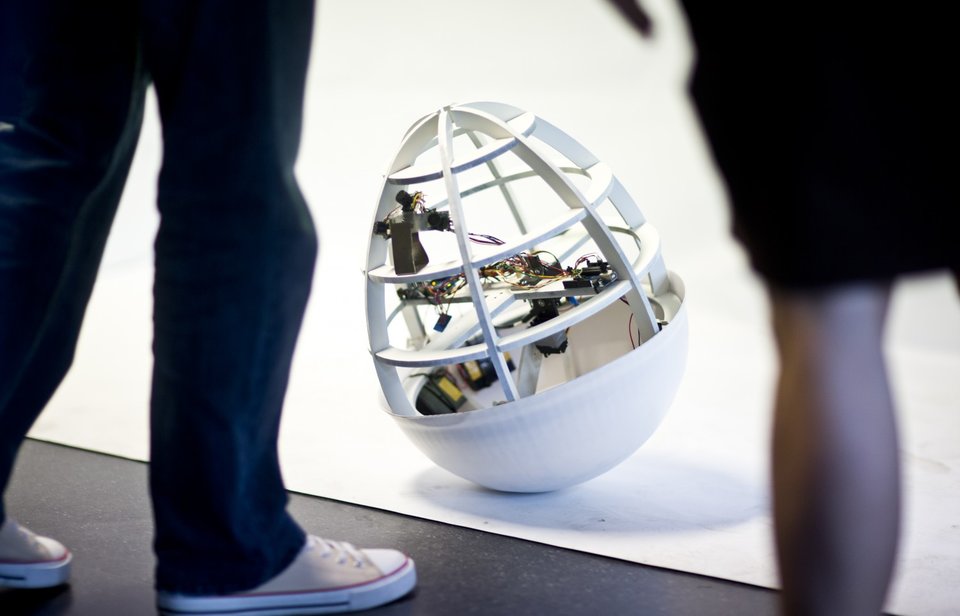Funding of 2 million to develop social skills for robots
Robots are increasingly capable of performing simple tasks and conveying messages, but they also lack social interaction and communication skills. The Dramaturgy for Devices project, of which TU Delft | IDE is a member, received 2 million in funding from the Dutch Research Agenda programme Research along Routes by Consortia (NWA-ORC) to develop these skills.
Robots are becoming a part of our daily lives. They help provide medical care, care for our homes and gardens, they support education and the workplace. They are increasingly capable of performing simple tasks and conveying messages, but they also lack many skills needed for social interaction and communication.
The Dramaturgy for Devices project aims to develop these skills in collaboration with theatre- and dance makers. It received 2 million in funding from the Dutch Research Agenda programme Research Along Routes by Consortia (NWA-ORC).
Designing human-robot interaction
TU Delft | IDE is taking part in this project and aims to design robot behaviour and human-robot interaction (HRI) to enhance the integration of robots into hotel settings.
The focus is on investigating the various roles robots can fulfil based on their functionalities and how they interact. These roles need to be balanced, such as being both hospitable to guests and co-workers. The goal is to seamlessly fit robots into the social context of the hotel. This involves understanding roles, interaction qualities, and how robots' expressiveness impacts these interactions.
Collaboration with the arts
The methodology involves collaboration between experts in Engineering and Performing Arts. It incorporates design ethnography, stakeholder interviews and speculative mythologies. The methods from Performing Arts include staging, choreography, and puppeteering to explore how robots' movements and behaviours can communicate intent and emotions.
The research involves collaboration with Hotelschool The Hague, involving stakeholders like guests and staff. Collaborating artists contribute insights into staging, choreography, and animation.
Designing robots that connect with people, requires sensitivity to people's expression and communication, as well as a feeling for specific settings and how robots fit into them. Knowledge and techniques from theatre are important here. The role of the designer is to help translate this knowledge into technology, taking into account possibilities and impossibilities of robotic technology.
Marco Rozendaal
The expected outcomes include an inventory of robot roles, methods for developing expressive robot behaviours, design guidelines for socially embedded service robots, and an AR prototyping tool.



